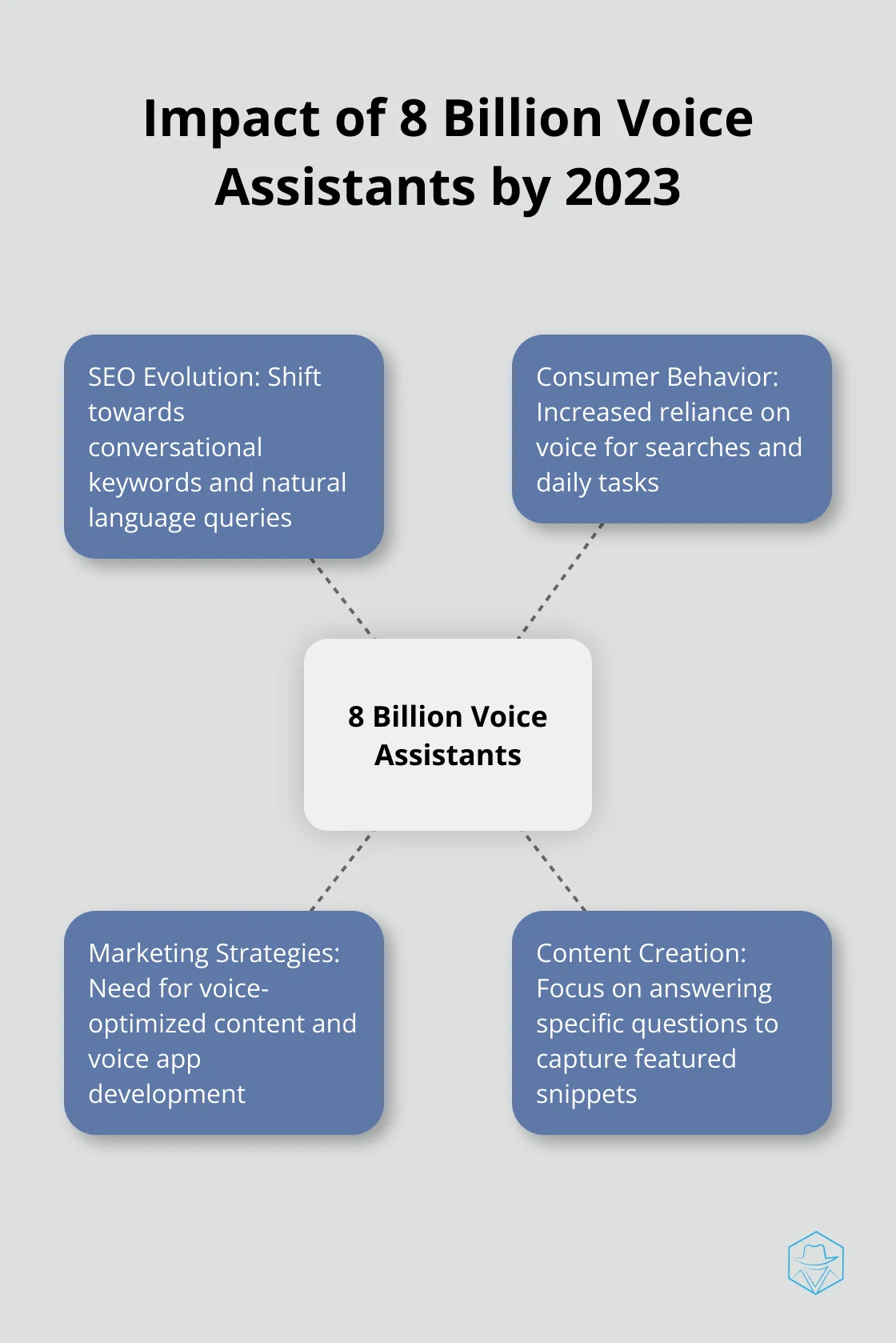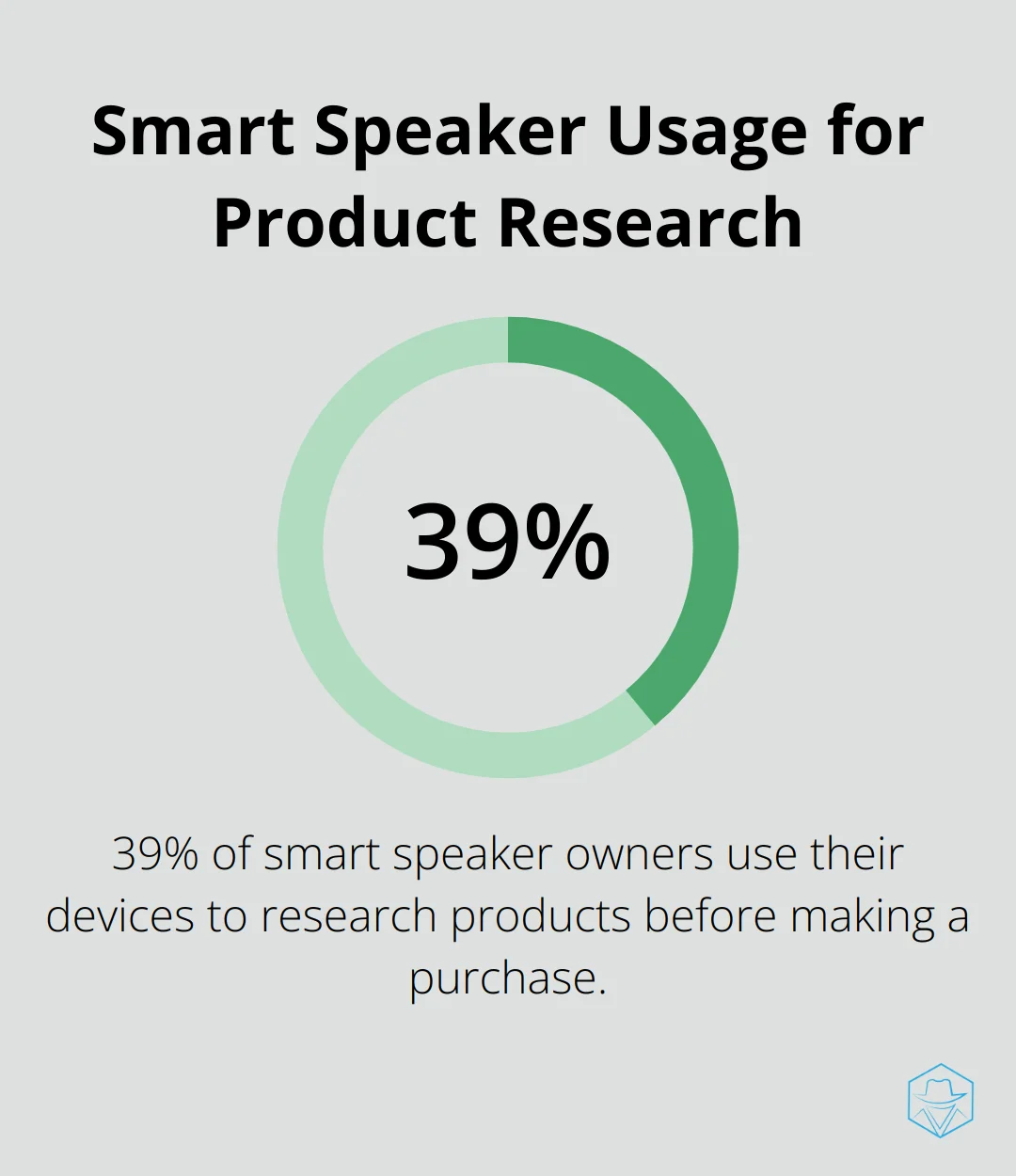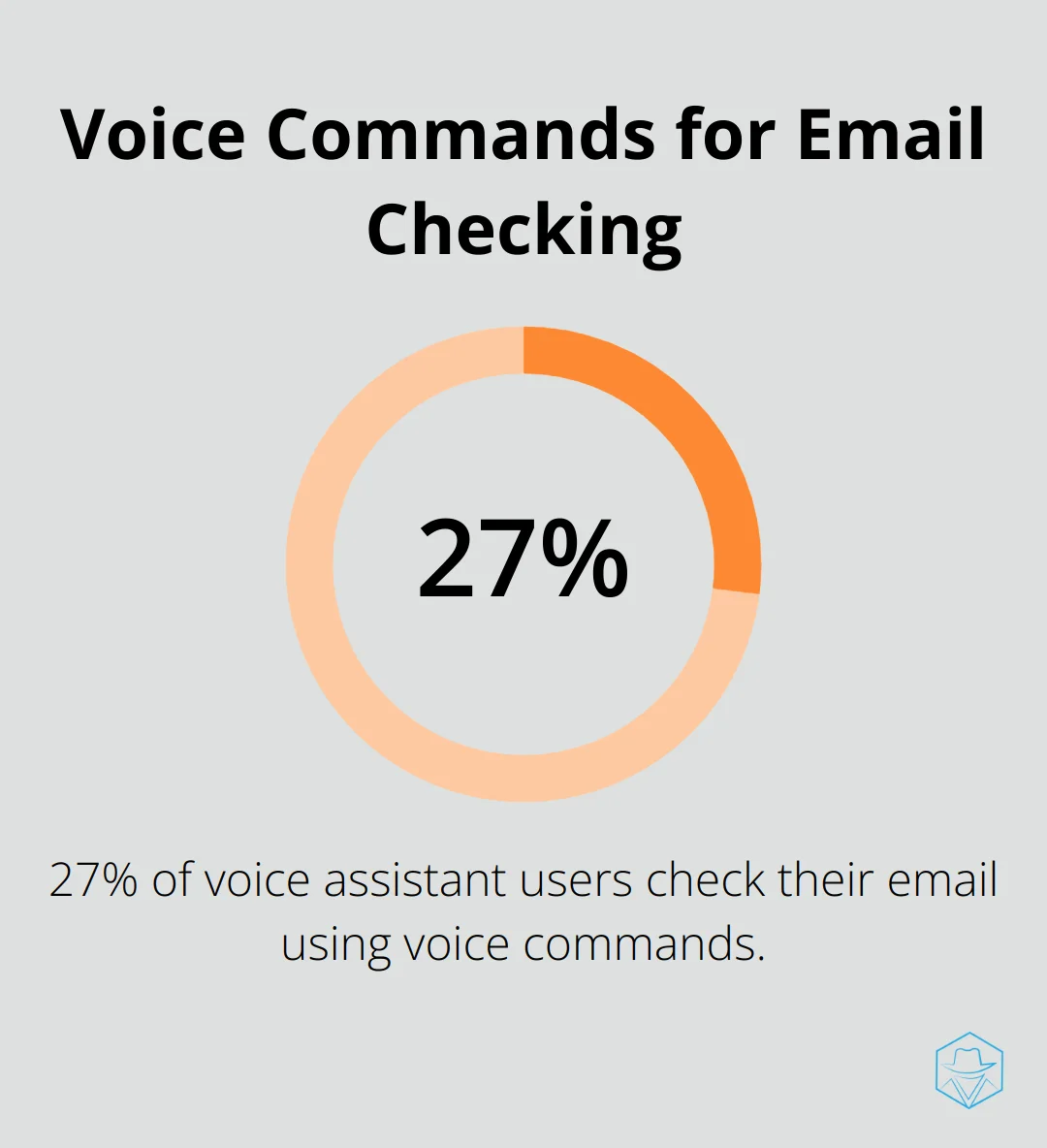The Power of Voice Marketing in the Digital Age

Voice marketing is revolutionizing the way businesses connect with their audience. At Drop Cowboy, we’ve witnessed firsthand how this technology is reshaping consumer behavior and creating new opportunities for engagement.
As voice-activated devices become increasingly prevalent, it’s crucial for marketers to adapt their strategies to this emerging landscape. In this post, we’ll explore the power of voice marketing and provide actionable insights to help you harness its potential.
How Voice Technology Is Changing Marketing
Voice technology transforms the marketing landscape, creating a new frontier for businesses to connect with their audience. At Drop Cowboy, we observe this revolution firsthand and help companies navigate this voice-first world.
The Voice Search Explosion
Voice search has become a reality, not a futuristic concept. A report by Juniper Research predicts 8 billion digital voice assistants in use by 2023. This massive number represents a significant shift in how consumers interact with technology and search for information.

Marketers must adapt their content strategies to align with voice search patterns. People use more conversational language when speaking compared to typing, often asking full questions rather than using keyword fragments. This shift demands a new approach to SEO and content creation.
Evolving Consumer Behaviors
Voice technology fundamentally alters consumer behavior. A PwC study found that 71% of consumers prefer to use voice assistants for searches rather than typing. This preference for voice interaction reshapes the customer journey from discovery to purchase.
Consumers now use voice assistants for various tasks (from setting reminders to making purchases). This opens up new opportunities for businesses to engage at different touchpoints. A customer might ask their smart speaker to reorder a product or check their delivery status-these are the new moments where brands can excel.
The Smart Speaker Revolution
Smart speakers have become the command centers of many homes. Amazon reported that customers interacted with Alexa billions of times each week in 2020, showing the deep integration of these devices into daily life. This ubiquity presents an unprecedented opportunity for marketers to be present in consumers’ homes in a non-intrusive way.
Businesses can leverage smart speakers beyond just being discoverable in voice searches. They can create voice apps or skills that provide value to users. These interactions (whether it’s a daily tip, a quick recipe, or a fun fact related to your industry) can build brand loyalty and keep your company top-of-mind.
Personalization Through Voice
Voice technology allows for a new level of personalization in marketing. With advancements in natural language processing and AI, voice cloning technology can enable highly personalized voicemail messages, enhancing the user experience and increasing the likelihood of conversion.
Businesses can use this capability to deliver personalized recommendations, offers, and content through voice channels. This level of customization enhances the user experience and increases the likelihood of conversion.
As we move forward, the influence of voice in marketing will only grow. The next chapter will explore effective strategies for businesses to harness the power of voice marketing and create engaging, conversational experiences for their customers.
How to Implement Effective Voice Marketing Strategies
Optimize Your Content for Voice Search
Voice searches differ significantly from typed queries. People use longer, more conversational phrases when speaking. To optimize for voice search, focus on natural language and long-tail keywords. Instead of targeting “best pizza,” try “where can I find the best pizza near me?”
SEMrush reports that 50% of voice search results come from featured snippets. To increase your chances of being the chosen answer, structure your content with clear headings and concise answers to common questions in your industry.
Create Voice-Friendly Brand Experiences
Develop a consistent brand voice across all audio touchpoints. This extends beyond words – it encompasses tone, personality, and even accent choice for your brand.
Consider creating a voice app or skill for smart speakers. These can range from simple informational tools to interactive experiences that engage users with your brand daily (e.g., a fitness brand could create a daily workout skill, while a recipe site might offer voice-guided cooking instructions).
Leverage Voice Assistants for Customer Engagement
Voice assistants offer unique opportunities for customer engagement. Use them to provide instant customer service, offer product recommendations, or even process orders.
A Voicebot study found that 39% of smart speaker owners use their devices to research products before making a purchase. Make your product information easily accessible through voice search to capitalize on this trend.

Personalize Your Voice Marketing
Personalization enhances the effectiveness of voice marketing campaigns. Technologies like voice cloning allow businesses to create personalized messages that feel authentic and engaging.
For instance, Drop Cowboy’s Mimic AI™ enables businesses to clone their voice for personalized messages. This technology can create highly engaging voice marketing campaigns that resonate with customers on a personal level.
Integrate Voice with Other Marketing Channels
Voice marketing shouldn’t exist in isolation. Integrate it with your other marketing channels for a cohesive strategy. Use voice mail drops to follow up on email campaigns, or incorporate voice commands into your mobile app experience.
This multi-channel approach (which includes SMS, email, and social media) ensures that your voice marketing efforts complement and enhance your overall marketing strategy.
As we explore the integration of voice marketing with other channels in the next chapter, you’ll discover how to create a seamless, omnichannel experience that maximizes the impact of your voice marketing efforts.
Seamless Integration of Voice Marketing
Combining Voice with Email Campaigns
Email marketing remains a powerful tool, and adding a voice component amplifies its effectiveness. A study by Voicebot reveals that 27% of voice assistant users check their email using voice commands. This trend opens up new possibilities for voice-optimized email content.

Marketers can now include voice-activated calls-to-action in their emails. For example, instead of a traditional click button, an email might prompt: “Ask your smart speaker to ‘Tell me about [Your Brand’s] latest offer’ for more information.” This approach creates a smooth transition from email to voice interaction.
Leveraging Voice and SMS Synergy
SMS marketing boasts impressive open rates (98% according to Mobile Marketing Watch). The combination of SMS with voice creates a potent marketing strategy. A brief SMS teaser followed by a detailed voice message can capture and maintain audience attention.
Some platforms allow easy integration of SMS and voice campaigns. An SMS might prompt: “We have an exciting offer for you. Tell your smart speaker ‘Yes’ to hear more.” This strategy creates an interactive experience spanning multiple channels.
Incorporating Voice in Social Media Marketing
Social media platforms increasingly embrace voice technology. Facebook (now testing voice commands in its app) exemplifies this trend. Marketers can capitalize on this development by creating voice-activated social media campaigns.
A voice-activated contest serves as an excellent example. Participants might use a specific voice command to enter, increasing engagement and familiarizing the audience with voice interactions related to the brand.
Maintaining Brand Consistency Across Channels
The key to successful integration lies in consistency. A brand’s voice should remain uniform across all channels (text, audio, or visual content). This uniformity builds trust and reinforces brand recognition.
Multi-channel integration of voice marketing creates a more immersive and interactive customer experience. This approach ensures that the message reaches the audience through their preferred medium, potentially increasing engagement and conversion rates.
Final Thoughts
Voice marketing has revolutionized how businesses connect with their audience in the digital age. This powerful strategy offers unprecedented opportunities for increased engagement, personalization, and improved accessibility. As natural language processing and AI advance, we expect even more sophisticated voice interactions, including predictive voice assistants and emotion recognition.
Businesses should act now to implement effective voice marketing strategies. They need to optimize content for voice search, develop a consistent brand voice, and create voice apps or skills for smart speakers. Integration of voice marketing with other channels proves essential for success, combining voice with SMS, email, and social media campaigns to create a cohesive experience.
Drop Cowboy stands at the forefront of this voice revolution. Our innovative communication platform provides powerful tools for businesses to harness the potential of voice marketing. From ringless voicemail to SMS integration and voice cloning technology, we offer solutions to create engaging, personalized voice marketing campaigns that drive growth in the digital age.
blog-dropcowboy-com
Related posts

August 4, 2025
What does it mean when your call goes straight to voicemail
Explore what it means when your call goes straight to voicemail and learn why it happens. Get practical tips to avoid missing vital connections.

June 16, 2025
Twilio vs Sinch: Which Platform is Right for You?
Explore Twilio vs Sinch to find the ideal platform for your needs, comparing features, pricing, and performance to guide your decision.

April 24, 2025
How to Become a Marketing Automation Consultant
Master the course to become a consultant in marketing automation and help businesses achieve efficiency with proven strategies and expert insights.

August 4, 2025
Slybroadcast pricing
Explore Slybroadcast pricing, discover cost-effective solutions, and gain insights into maximizing your marketing budget with this detailed guide.

April 17, 2025
Which SEO Apps Work Best for Shopify Stores?
Discover the best SEO apps for Shopify stores and boost your store’s visibility with top tools and strategies. Optimize your online presence now.

June 27, 2025
Best Dialers for Effective Cold Calling Campaigns
Explore top dialers for cold calling to boost your campaigns. Learn which tools enhance efficiency and effectiveness in reaching potential clients.